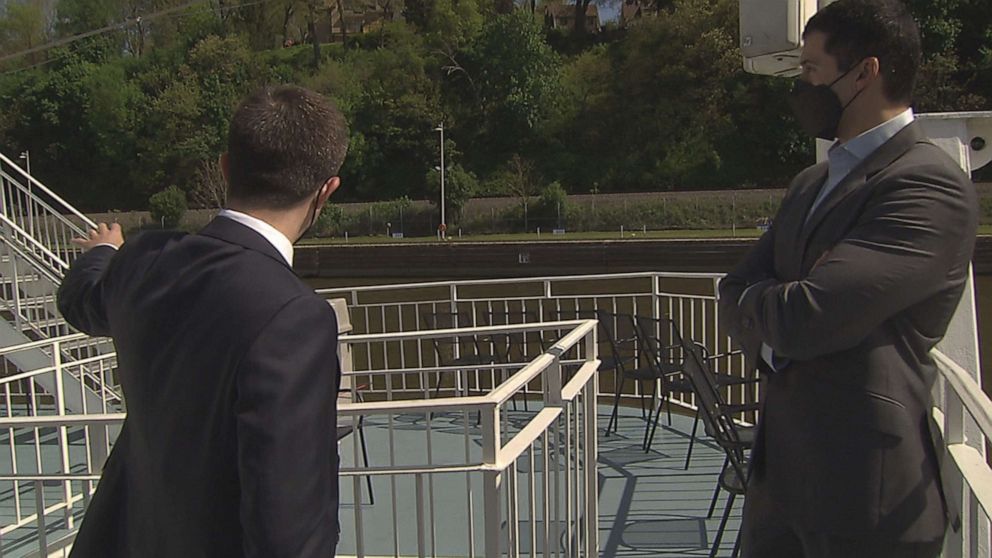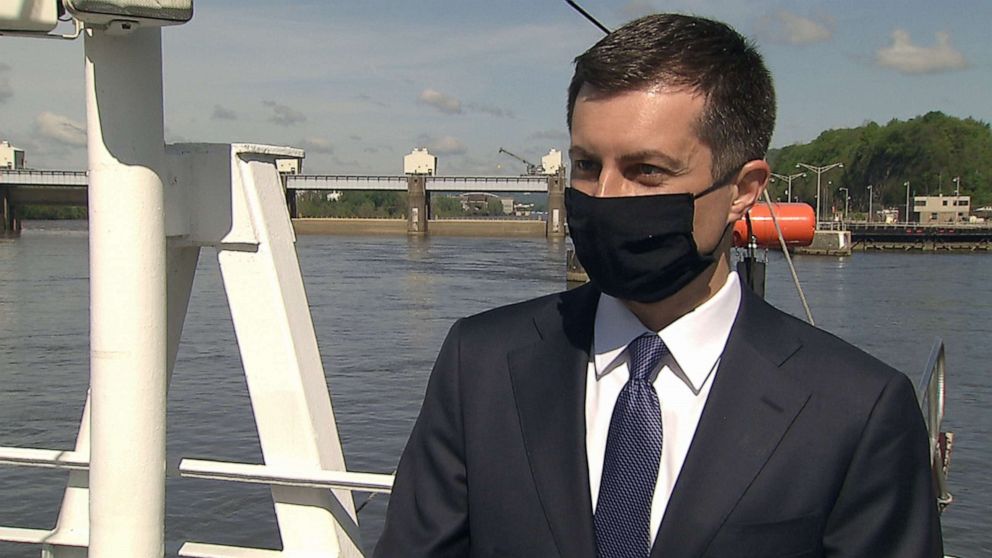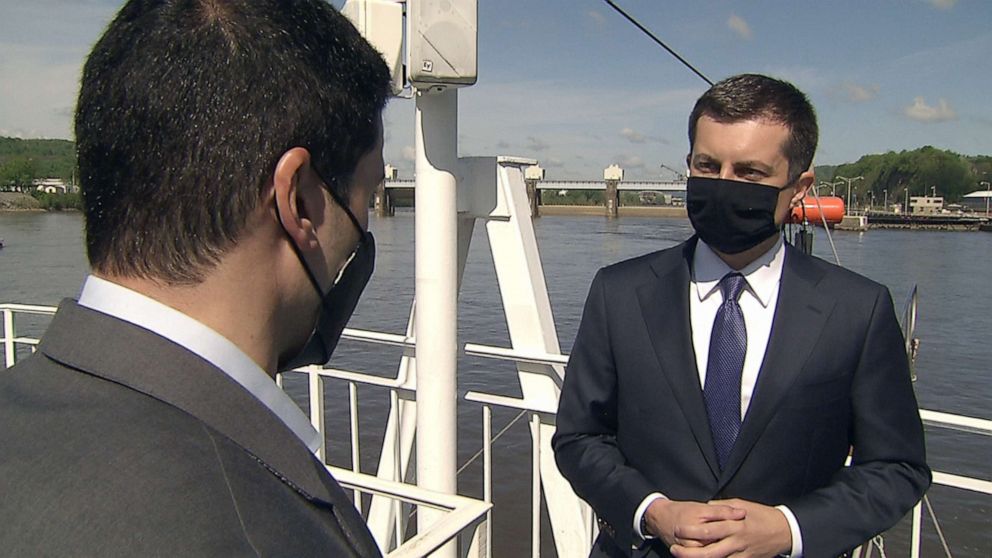Transportation Secretary Pete Buttigieg on $2.3 trillion infrastructure plan: 'Doing nothing is what's truly unaffordable'
"We're either going to pay now or we're going to pay a lot more later."
Secretary of Transportation Pete Buttigieg didn't hit the road on Thursday, he took to the water in an effort to gain support for the administration's $2.3 trillion infrastructure plan.
Buttigieg returned to Pittsburgh, where the plan was first announced by President Joe Biden in March, to get an up-close look at some of the nation's aging bridges, locks and dams.
Pennsylvania has the second-most structurally deficient bridges in the United States, according to the American Road and Transportation Builders Association. Some of the older bridges have to be draped with nets designed to capture pieces of concrete that could plummet to the sidewalk.
"We're relying on infrastructure from the last century," Buttigieg told ABC News' Transportation Correspondent Gio Benitez as they traveled by boat down the Ohio River.

If only one of Pittsburgh's more than 400 bridges fails, local officials say it would shut down the entire port.
"The impact on jobs, the impact on economic well-being, not to mention just things like the impact on traffic, could be enormous," Buttigieg warned about a potential failure.
And it's not just Pittsburgh that has bridges in "a state of disrepair," the secretary said. "The same is true across the entire country."
The infrastructure plan, dubbed the American Jobs Plan, includes $621 billion in updates to modernize roads, rails, ports, airports, mass transit and highways, as well as $45 billion to eliminate all lead pipes.

But it also covers things that aren't traditionally considered infrastructure.
For example, the plan includes $400 billion for community-based care for elderly Americans, a $180 billion investment in clean energy and $100 billion to build out high-speed broadband across the country, paid for in part by increasing the corporate tax rate -- lowered under former President Donald Trump -- from 21% up to 28%.
The administration says the plan would create millions of jobs, citing independent analysts.
Republican lawmakers have voiced their desire for a more narrow definition of infrastructure and are against increasing the corporate tax rate to fund the plan. They believe the lower tax rate helps fuel the economy.
"Will the administration budge if it has to?" Benitez asked the secretary. "If certain projects are not considered classic infrastructure and the bill wouldn't pass?"
"This is a negotiation," Buttigieg replied. "And, of course, we want to hear other ideas. And the president is speaking to Republicans and Democrats, as I am every day, but what's not an option is to do nothing -- to just keep everything the same."

A 2019 report by the World Economic Forum ranks the nation's infrastructure as 13th in the world.
"Our competitors, including China, they're not wasting any time getting into academic arguments about what's infrastructure," Buttigieg said. "They're investing. And we cannot afford to be left behind. The cost of doing nothing is what's truly unaffordable."
He said if the bill doesn't pass, expect "Americans to miss out on opportunities because [they] don't have the infrastructure that [they] need in order to thrive."
"We're either going to pay now or we're going to pay a lot more later," Buttigieg said.
ABC News' Amanda Maile contributed to this report.




